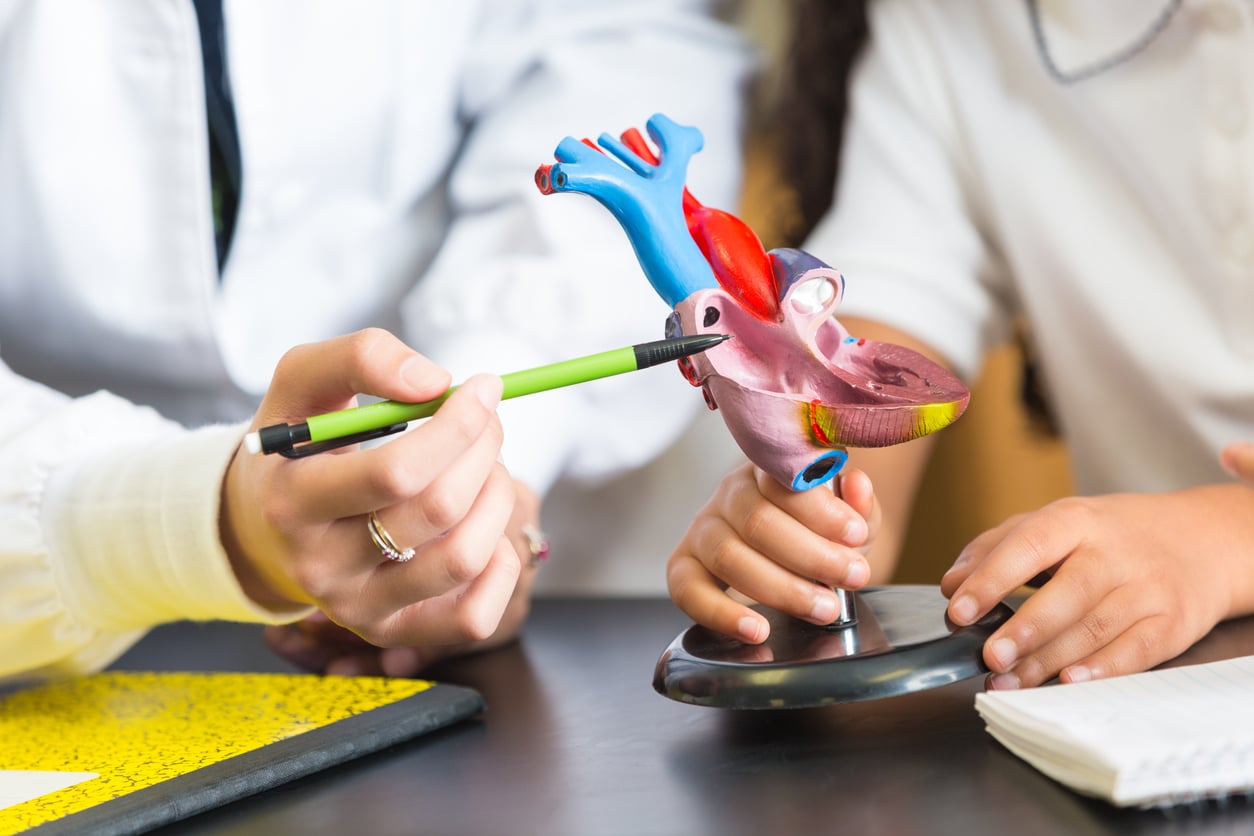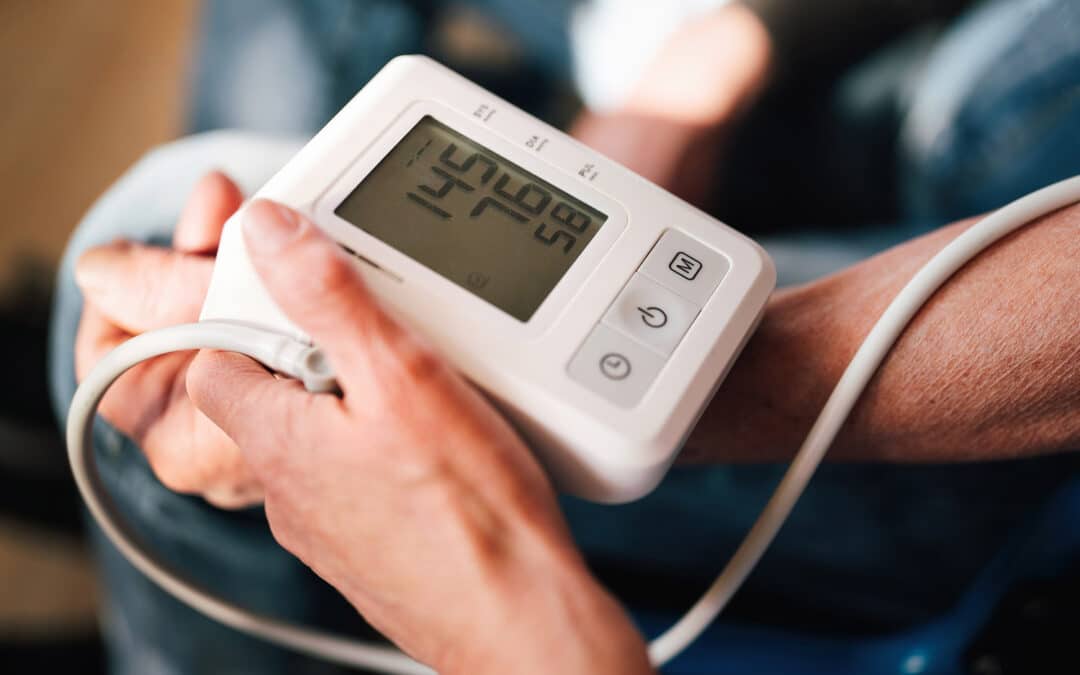Valvular heart disease affects about 2.5% of the US population, which translates to about 8.7-11.6 million people. It is more common as we get older, and the number of people greater than 80 years old is expected to increase from 6.9 million in 1990 to approximately 25,000,000 by 2050, and thus making valve disease a much more prevalent problem. There are four valves in the heart that regulate the proper flow of blood organs. The aortic valve separates the heart from the primary artery of the body (aorta) which delivers oxygenated blood to the entire body.
What is severe aortic stenosis and what are the symptoms?
Stenosis is the narrowing of the valve when it should be wide open. When the aortic valve is narrowed, the pressure inside the heart slowly increases and eventually leads to symptoms. The valve over decades slowly narrows through different grades until it reaches a certain threshold that is deemed severe. Most people do not have symptoms until the valve has severely narrowed.
The most common symptoms include shortness of breath, fatigue, chest pressure or tightness, swelling in the legs, dizziness, or in certain circumstances losing consciousness. Once someone has reached this point, the aortic valve needs to be addressed.
How is aortic stenosis treated?
There are no medications that can improve the severity of the valve and it requires replacement. Classically, this would require open heart surgery and placement of either a mechanical valve or a pig or heart valve (bioprosthetic). Unfortunately, as this was a disease in the aging population, about 30-40,000 patients a year were deemed unsuitable from surgery and had no further options. Therefore, TAVR was developed as a less invasive option for patients who could not tolerate surgery and has proven to be one of the biggest breakthroughs in cardiovascular care in last 20 years. Over that time, the procedure and the technology of the device has advanced to the point where TAVR can be offered to all patients with severe symptomatic aortic stenosis if they are deemed a suitable candidate.
Here is a brief guide on the preoperative workup, the operation, and the follow-up with our TAVR surgeons, Dr. Khaled Khalaf and Dr. Michael Daniel
Introducing Dr. Khaled Khalaf and Dr. Michael Daniel
Dr. Khaled Khalaf completed his post-doctoral training at the Texas Medical Center at the University of Texas Medical School in Houston. He’s received board certifications in internal medicine, cardiovascular disease, and interventional cardiology.
Dr. Michael Daniel completed his cardiovascular disease training at the University of Texas Southwestern Medical Center in Dallas, TX followed by two years of subspecialty training in Interventional Cardiology as well as Structural Interventional Cardiology at Washington University in St. Louis. He has received his board certifications in Internal Medicine, Cardiovascular Disease, Interventional Cardiology, Nuclear Cardiology, Echocardiography
TAVR Surgery Guide
Aortic valve replacement involves replacing the current valve with a valve made from the lining of a pig or a cow. With surgical aortic valve replacement, a heart surgeon removes the old valve and so was in a new one while the heart is stopped and a person is placed on a heart lung machine under general anesthesia. With TAVR, A new valve is placed inside of the current effective valve while the heart is beating often while the patient is still awake usually through small incisions in both groins.
Evaluation Appointment (Approx. 30 Mins to 1 Hour)
In the first appointment, Dr. Khalaf and Dr. Daniel, will review your medical history and prior diagnostic studies, especially an ultrasound of the heart, to determine the severity of the valve disease and if a valve replacement is indicated.
Preoperative workup (2-4 weeks)
If an aortic valve replacement is indicated, then a number of tests need to be performed to assess for candidacy for TAVR. These include a specialized CT scan to make accurate assessment of not only the size of the valve but the anatomy of the leg arteries to ensure safe delivery of the valve.
You will also need to have an accurate assessment of the coronary arteries (arteries that give oxygen to the heart muscle), to ensure optimum blood flow during the TAVR operation with a heart catheterization. This is obtained by accessing the artery in your groin or wrist. If there is inadequate blood supply, a cardiac stent may need to be implanted prior to moving forward with aortic valve replacement.
Almost all of these studies, including the heart catheterization, can be performed in our office. If you are deemed a candidate for TAVR, then he will be referred to one of our heart surgeon colleagues prior to scheduling. Although this is not technically open heart surgery, every TAVR in the world is done in conjunction with a heart surgeon.
The Surgery (Variable)
Most operations are done while placed under heavy sedation but in certain circumstances you will be placed under general anesthesia. You’ll receive small incisions in both legs, on one side the valve is advanced and on the other side we will place catheters so we can properly image the valve to ensure we are placing the TAVR in the correct location. You will also obtain a temporary pacemaker that can be removed at the end of the case that is vital for proper delivery of the valve. The valve will then be directed up your leg into proper position and deployed into place. Afterwards, the incisions are sutured.
Immediate After-Care (Approx. 1-2 Days)
After surgery, the majority of patients go to our post anesthesia care unit and then to the intermediate care unit. In certain circumstances, patients will require monitoring in the ICU. You will have to lay flat on your back for 4 hours after the procedure to make sure there is no bleeding from the surgical sites and then we encourage ambulation later the same day. Everyone requires at least one night stay in the hospital where labs, x-rays, and ultrasound of your heart will be performed to ensure proper valve function. If everything look stable, most patients are discharged home the following day.
The Follow-Up Appointments (Weekly)
Upon discharge you will follow up in 1-2 weeks with Dr. Khalaf and Daniel to assess your recovery and any issues that may have arisen. Please let them know if you and any new or worsening symptoms such as bleeding or swelling from the surgical site, dizziness, losing consciousness, chest pain, worsening shortness of breath or any other concerning symptoms. If all is well, you will be seen again about 30 days after the procedure with repeat ultrasound of your heart to ensure proper functioning. If all is well at 1 month, you will not need to return for 1 year.
As an artificial valve is implanted, it is very important to maintain excellent dental health as they are at risk of becoming infected. If you are planning to have dental work or even routine cleaning, you need to contact your cardiologist to obtain a one time dose of antibiotics about 1 hour prior to your appointment.
Want to Take Your Heart Health into Your Own Hands? Contact Us Today!
Heart surgery is a huge step towards a healthier, happier you. We understand that hearing you need heart surgery can be very scary. However, having a clearly laid out TAVR surgery plan and knowing that a professional, high-quality medical team will be at your side through the entire process, will help you build confidence in going forward with the procedure. Contact Dr. Khaled Khalaf or Dr. Michael Daniel and the Vital Heart and Vein staff today to schedule a TAVR consultation!




